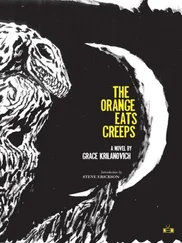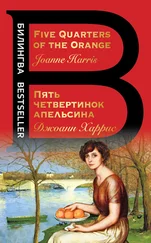Tom and Grizel were fiercely Edwardian in their beliefs about bringing up children, and the three of us – Anthea was ten years older than me, and John seven – had a tougher time of it than children have now. Of course we were all born with whacking great silver spoons in our mouths, but I don’t know how you can choose your parents. You’ve got to get along with what you’ve got. I’m sure Anthea and John had a stricter start to life than I did. In the thirties nannies and nurserymaids abounded, and Tom and Grizel will have been even more remote figures for the other two than they were for me. I probably had an easier time of it because during the war Nanny had to go back home to Heacham in west Norfolk to look after her sick mother. As a result, Grizel, with the help of any temporary nurserymaid she could lay her hands on, had to roll up her sleeves and do much of the dirty work herself, so she and I had a closer relationship than she did with Anthea and John. I am sure the love between parents and children was just as strong then as it is now, but in those days it was not the upfront jamboree that it has become. In fact, when you look back at it all those years ago, it seems harsh and at times almost cruel. My friends were brought up in much the same way – that was just the way things were done. I should think my parents’ generation felt that life was easy for us compared to the way they themselves had been brought up in the years immediately after Queen Victoria had died. It is all part of the ever-going evolutionary process which has brought us now to the age of the free-range child. So what seemed perfectly normal to us at the time may seem shocking from today’s considerably more relaxed perspective.
While Tom and Grizel were sticklers for keeping us on the straight and narrow, they were, in their own way, loving parents who did their best to make sure that we had as happy a childhood as possible, within the constraints of the time. They were always there for us, to help and give support, although if the fault was mine, as it usually was, they did not hesitate to say so, and seldom minced their words. For years they remained a staunch last resort, and like all offspring I went running back when in need of help, usually in the form of cash, although with only modest success, as Tom and Grizel were never that flush, and guarded their pieces of eight with a solemn rectitude.
I remember when I had reached the pocket-money stage going along to my father’s dressing room to collect my weekly dose. Sometimes I arrived a little ahead of schedule and caught him in his pants, socks and attendant sock suspenders, which was an awe-inspiring sight. It was like looking at a pole-vaulter as things went wrong. There was great excitement one morning when I found I had graduated from a twelve-sided threepenny bit (a penny of which had to go into the church collection) to a silver sixpence. The handover of the coin or coins was carried out with a formality which almost suggested that the Bank of England was involved. Tom kept his loose change in the top drawer of a tiny chest with three little drawers which perched alongside his elderly pair of ivory-backed hairbrushes, which had a strong smell of lemon from the hair oil he got from his barber. As my father made a coot look as if it was in urgent need of a haircut, this all seemed a rather pointless exercise.
While he solemnly located the appropriate piece of small change in this magical drawer, I stood by the door. I don’t think it would have occurred to Tom that he was a frightening figure to a small boy. This had something to do with his height – he stood six feet six inches tall in his stocking feet – as well as his monocle and the sock suspenders, which so fascinated me. His lighter side was harder to find than Grizel’s, and his was naturally a more formal manner. The staff, in the house and on the Home Farm, treated him with a watchful respect. When crossed or let down he could be extremely angry, and would have made common cause with some of those grumpy Old Testament prophets.
Tom regarded the ancien régime as the only possible way forward, while Grizel, if left to herself, would have been happy to allow her more extravagant natural instincts to come to the surface. While Grizel laughed in a bubbling, jolly sort of way, Tom’s merriment seemed to rumble up with more control from the bottom of his throat, and the source of his humour was often harder to fathom than his wife’s. Grizel had a strong sense of loyalty to her husband, and she was always more than aware of her position as Tom’s wife, and played the role pretty well. She was a snob, but I remember it as a snobbery as of right, rather than as a contrivance. Looking back on my parents and my childhood now, it comes to me like a black-and-white, but seldom silent, movie, and from this distance I find it highly entertaining.
The Blofelds have always been a restless lot. At some long-ago point, now lost in the mists of time, they moved from north Germany to Finland, and then shot across the North Sea with the Vikings before finally being grounded on the north Norfolk coast somewhere near what is today called Overstrand, then pushing a few miles inland and setting up shop in a small village called Sustead. Three or four hundred years whizzed by before they up-anchored again, moving twenty-odd miles south-east to Hoveton, which at that time was owned by some people called Doughty. Having a shrewd eye for the main chance, a Blofeld married a Miss Doughty, who was to become the sole surviving member of that distinguished family. Hoveton therefore soon became the Blofeld stronghold, and has remained so ever since.
Discipline – good manners, politeness, the pleases and thank yous of life – was all-important in my childhood. I can’t remember how young I was when I was first soundly ticked off for not leaping to my feet when my mother came into the room, but young enough. Dirty hands, undone buttons, sloppy speech or pronunciation, and the use of certain words were all jumped upon. Throwing sweet papers or any other rubbish out of the car window was also not popular. Goodness knows what my parents would have made of mobile telephones, and their frequent and disturbing use. Table manners were rigidly enforced. No one sat down before Grizel was in place, and you were not allowed to start eating until everyone had been served. If toast crumbs were left on a pat of butter, there was hell to pay, your napkin had to be neatly folded before you left the dining room, and you ate what was put in front of you and left a clean plate.
The nursery was presided over by Nanny Framingham, who was nothing less than a saint. Cheerful, enthusiastic and always smiling, she put up with all sorts of skulduggery. On one occasion I all but frightened her to death. My father’s guns and cartridges were kept in the schoolroom, which was next to his office. I always took a lively interest in the gun cupboard, although it was forbidden territory, and when no one was around I used to go and have a good look round. I loved the smell of the 3-in-One oil which was used to clean the guns. There was also something irresistible about the cartridges. I would steal one or two of them, take them back to the nursery and cut them up to see how they were made. One afternoon Nanny came into the room unexpectedly while I was engaged in this harmless pastime, and the sight of the gunpowder and loose shot lying all over the table terrified her – she saw us all going up in an enormous explosion, and was quick to run off and enlist help. Within a matter of minutes Tom burst into the nursery, looking and sounding a good deal worse than the wrath of God. My cartridge-cutting activities came to an immediate halt, and I was probably sent up to my bedroom for an indefinite period, possibly with a clip over the ear or a smack on the bottom as well. Corporal punishment was always on the menu.
Читать дальше












